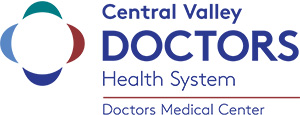Infectious Disease Specialist Answers COVID-19 Questions
Apr 16, 2020Navneet K Gill, M.D., Infectious Disease Specialist at Doctors Medical Center answers common questions about COVID-19
- Should I be tested? If so, where do I go?
If you feel sick and have flu-like symptoms such as fever, cough, muscle aches/body aches, please call your primary care physician first. I would advise you to stay home and don't go to any clinics or urgent care facilities. If you have the above symptoms and you feel like you’re getting worse and have additional symptoms such as shortness of breath, chest discomfort, nausea/vomiting and diarrhea, please go to your nearest emergency department. If you traveled within two weeks of becoming ill, please get yourself tested and avoid social contact. Stay home for at least 14 days or longer until your symptoms resolve. If you had contact with someone who tested positive for COVID-19 and you have risk factors such as older than age 60, diabetes, hypertension, cancer history, on chemotherapy, HIV disease, cardiovascular disease such heart attack, stroke, chronic kidney disease, on hemodialysis, COPD/emphysema, or other chronic lung disease, please get yourself tested. You could get a serious infection and may need hospitalization if you get sick.
- How do I know the difference between allergies, cold, flu, and COVID-19?
You may experience extreme fatigue, high fever, dry cough that you won't with allergies. If you have itchy and scratchy throat, sneezing, runny nose and runny eyes, that would indicate allergies in absence of fevers. Fever generally indicates infection. Flu and COVID-19 may present similarly. But if you have had recent contact with a COVID-19 patient or you have traveled recently, COVID-19 should be suspected
- How do I know if I should go to the ED or my PCP?
- What should I do if one member in our household has symptoms?
-
How can I treat my fevers and body aches?
You can take Tylenol as needed. Please avoid NSAIDs such as Advil, Ibuprofen or Naproxen. Please contact your PCP if you have further questions or need guidance.
If you have shortness of breath and chest pain, you should go to the ED. In order to prevent exposure to healthcare workers, please contact your PCP over the phone and try to get seen virtually i.e. via telehealth. Many outpatient clinics are doing Telemedicine during the outbreak to minimize exposure to staff and other patients. If you have mild symptoms such as cough, fatigue or body aches, you can start off with PCP evaluation and get monitored closely. Avoid social contact and stay home for at least 14 days or longer until your symptoms resolve.
The sick household member should stay in one room and use one bathroom. Avoid close contact for two weeks or longer until his/her symptoms resolve. He/she should practice frequent hand washing, stay hydrated, cover their mouth while coughing/sneezing, and if possible, wear a mask. Frequently touched surfaces should be cleaned often since the virus can live for hours on surfaces, especially metal and plastic. If there are any elderly members in the house, try to keep them away from the sick individual as much as you can.

